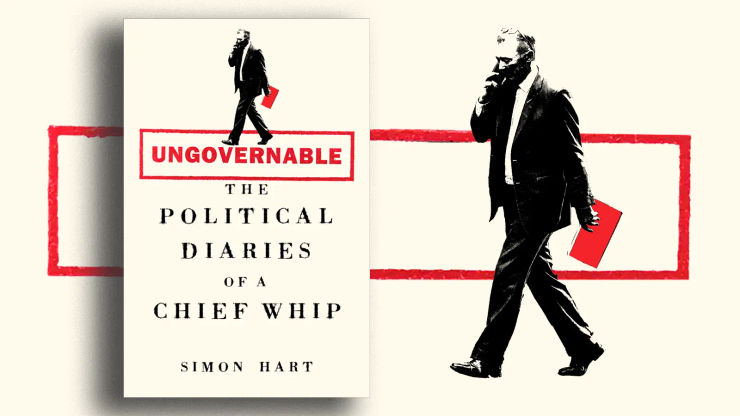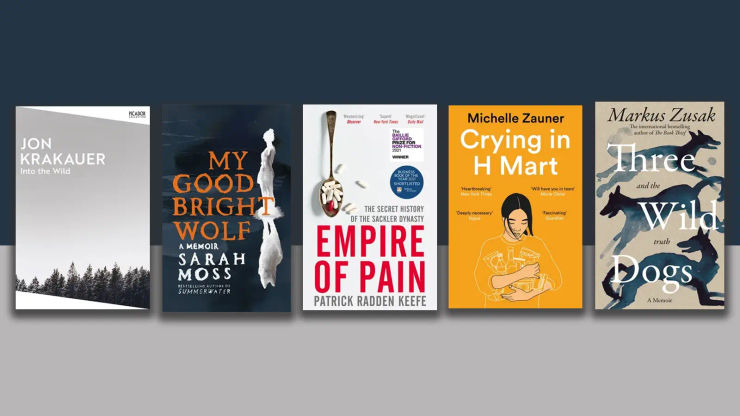‘You might very well think that’: what does a chief whip really do?
Simon Hart, an MP for fourteen years and the last governing Conservative Chief Whip, on what this somewhat shadowy and often misunderstood role actually involves.

It was back in 1990 when the role of 'Government Chief Whip' really entered the public consciousness and Francis Urquhart from House of Cards became a household name. I was twenty-seven, and largely oblivious to the workings of Parliament, let alone what this curious and ancient role entailed. But Michael Dobbs’ brilliantly irreverent, devilish and ominously accurate drama (with the lead role made famous by the genius of Ian Richardson) triggered a similar reaction the length and breadth of Britain – can this really be true?
Were MPs being bullied and blackmailed into leadership conspiracies or forced to vote against their consciences; was Parliament a hot bed of sex and drugs, conspiracies and criminality?
The answer is not quite, or at least not always. Parliament is a place of debate and argument, often fierce and always passionate. It’s not a factory or an office. We don’t really make things (other than laws).
And it’s tribal. There used to be two main tribes, now there are more. Each tribe wants to out-do the others and claim the top prize – Government - and the keys to Number 10. In that ambition the opportunities for malevolence and mischief are numerous. The enemy must be neutralised, their weaknesses (real or perceived) ruthlessly exposed. Obstacles must be removed, even (or especially) those created by one’s own colleagues. So yes, House of Cards erred very much into the territory of truth.
Why are they called Whips?
The origins of whipping are less surprising, perhaps. The role of Whip comes from the hunting field, the source of many eighteenth-century expressions we casually use to this day. 'The Whipper In' is responsible for keeping the hounds in order and has a special place in the pecking order of the hunt. Only the Master (or in our case the PM) is of higher authority.
The Chief Whip’s role these days is reinforced by a team of junior whips, who each look after their own 'flock' of between fifteen to twenty-five MPs. The junior whips' job is crucial. They are the eyes and ears of the Government (or for the opposition chief whip – of their party.) They are the 'tellers' in every vote on the floor of the House, in every Bill committee and for every Statutory Instrument that requires the approval of Parliament.
‘Whips are confidantes, spies, counsellors, therapists and HR managers. They must understand procedure, have an eye for detail and make sure they know exactly what their flocks are thinking, and planning, twenty-four hours a day.’
Whips are confidantes, spies, counsellors, therapists and HR managers. They must understand procedure, have an eye for detail and make sure they know exactly what their flocks are thinking, and planning, twenty-four hours a day. They must have lines of communication into the other parties, government departments, Special Advisers (SpAds) and (where appropriate) the media. Knowledge is everything.
And while all this is going on, 'the Chief' as the Chief Whip is traditionally know to all, is in a parallel world.
What does the Chief Whip do?
The Chief Whip is the main point of contact between MPs and No 10. They attend every meeting, organise every sacking and hiring and also handle the legislative programme the Government has opted to pursue. Their one mission? 'To get the Government’s business done.' Nothing happens unless the Chief can assure the PM they have the numbers to win the vote and win well. Crucially, the Chief is the PM’s personal lightning conductor, making sure headaches are diverted or resolved long before they make it to the boss’s desk.
‘The Chief is the PM’s personal lightning conductor, making sure headaches are diverted or resolved long before they make it to the boss’s desk.’
The Chief’s office is the epicentre of another parliamentary enigma: 'The Usual Channels'. This curious expression describes the vital role undertaken by advisers and civil servants in liaison with the Opposition, the Speaker’s Office and colleagues in the House of Lords: agreeing a programme for Government, a workable timescale and ensuring important parliamentary customs are observed.
All of this forms the basis of the King’s Speech in which certain senior whips carry out the formal role of Treasurer, Comptroller and Vice Chamberlain of the Household, complete with their white staves of office.
It’s not all fun and history though. The whips are the initial point of contact with Palace of Westminster officials on matters such as serious breaches of House security or criminal activity. They are required by the PM to ensure discipline is applied and maintained and can, in extremis, remove the whip from persistent offenders – a penalty that can debar them from being able to stand at elections.
Where does the expression ‘three-line whip’ come from?
The expression 'three-line whip' originates from the business of the House being underlined three times on the order paper to remind members that it is critically important that they attend and vote, unless permission for absence is granted by the 'pairing whip' by way of the much sought-after 'slip'.
And then there are reshuffles and honours, the two aspects of political life that can bring untold joy and unimaginable disappointment. The bulk of both processes fall to the whips to deliver on the day and then manage in the aftermath as the truth slowly dawns.
The Chief Whip is never as powerful as they are on their first day. After that it becomes a process of burning through whatever political capital they started with. Perhaps this explains why there have been twelve Chiefs in the last fifteen years.
Read more from Simon Hart in Ungovernable, as he lifts the lid on life as an MP and Chief Whip during one of the most turbulent eras in modern-day Britain.
Phone rings at 2.45 a.m. from a 2019’er, clearly drunk but just about coherent.
‘Hi Chief, hope I haven’t woken you.’
Me: ‘What’s up?’
‘I’m stuck in a brothel in Bayswater and I’ve run out of money.’
Me: ‘Go on . . .’
‘I met a woman as I left the Carlton Club who offered me a drink, but I now think she is a KGB agent. She wants five hundred pounds and has left me in a room with twelve naked women and a CCTV camera.’
Me: ‘Give me a few moments and I will call you back.’
Bloody hell, this is a mess.
Ungovernable
by Simon Hart
The last governing Conservative Chief Whip, and one of the few to last an entire premiership, reveals all in this political memoir. An MP from 2010 to 2024, Simon Hart had a front row seat for the Brexit negotiations, Liz Truss's forty-nine days and the Russian invasion of Ukraine, and became Chief Whip under Rishi Sunak. In a first-of-its-kind extraordinary look at life in the role, Ungovernable is a revealing, real-time, blow-by-blow account – offering a glimpse of what truly goes on in Westminster behind closed doors.



